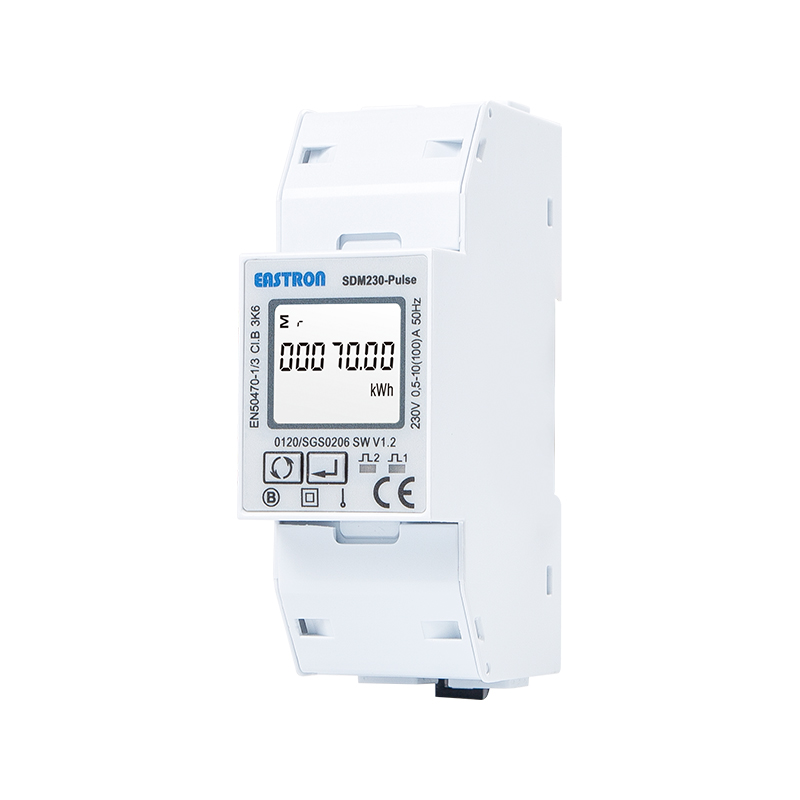Product Consultation
Your email address will not be published. Required fields are marked *
ETL energy meters, which are certified by ETL (Intertek) for safety and performance, offer several key features and advantages compared to other types of energy meters in the market. These features help ensure accuracy, reliability, and compliance with industry standards. Below are the main features and advantages of ETL energy meters:
1. Compliance with Safety and Performance Standards
ETL Certification: ETL-certified energy meters meet stringent safety, quality, and performance standards set by regulatory bodies. This ensures that the meters are safe to use and perform accurately within the specified parameters.
Regulatory Compliance: The certification guarantees that the meters comply with international standards (such as IEC, ANSI, or UL), ensuring they meet necessary regulatory requirements for energy measurement and monitoring.
2. High Accuracy and Precision
Measurement Accuracy: ETL energy meters are designed to provide high-accuracy measurements of electrical consumption. They offer precise readings for active, reactive, and apparent energy, ensuring that users can rely on the data for billing, monitoring, and reporting.
Error Margin Control: These meters have low error margins compared to standard energy meters, offering highly reliable data, which is crucial for accurate billing and energy management.
3. Enhanced Durability and Reliability
Robust Design: ETL-certified energy meters are built with durable materials and are designed to withstand harsh environmental conditions, including temperature fluctuations, humidity, and electrical interference.
Long Lifespan: These meters are generally designed to last longer than non-certified meters, making them a more cost-effective long-term investment.
4. Advanced Communication and Data Reporting
Remote Monitoring: ETL energy meters often support communication protocols such as Modbus, TCP/IP, and others, allowing for easy integration into building management systems (BMS) or energy management systems (EMS). This enables remote monitoring, control, and reporting of energy usage.
Data Logging and Alerts: ETL meters can store detailed energy consumption data and send alerts for abnormal usage or faults. This helps in troubleshooting and identifying energy inefficiencies or system issues in real time.
5. Energy Efficiency and Load Management
Load Profiling: Many ETL-certified meters are capable of load profiling, which helps identify peak demand periods and optimize energy consumption, reducing electricity costs.
Energy Saving: By providing detailed insights into energy usage, ETL energy meters help businesses and industries manage their energy more effectively, leading to better efficiency and reduced energy waste.

6. Scalability and Integration
Modular Design: ETL energy meters can be easily integrated with other smart grid or energy management technologies, allowing for scalability as energy monitoring needs grow. They can be used in small-scale applications, such as residential monitoring, or in large-scale industrial settings.
Compatibility with Renewable Energy: Many ETL meters are designed to handle bidirectional power flow, making them compatible with renewable energy systems, such as solar and wind, which can feed energy back into the grid.
7. Real-Time Data Monitoring and Reporting
Instantaneous Data: ETL energy meters offer real-time monitoring of energy usage, providing instantaneous feedback on energy consumption patterns, voltage, current, frequency, and power factor.
Energy Usage Insights: This real-time data can be used to analyze energy consumption trends, optimize load distribution, and detect inefficiencies in the system, ultimately helping to reduce energy costs.
8. Security Features
Data Protection: ETL-certified meters typically feature secure data transmission methods to protect sensitive energy data from tampering or unauthorized access. This is crucial for both regulatory compliance and cybersecurity in industrial environments.
Tamper Detection: Some ETL energy meters include features like tamper detection, which can alert operators if the meter has been tampered with, ensuring data integrity.
9. Ease of Installation and Operation
User-Friendly Interface: Many ETL energy meters come with a simple, easy-to-understand display and intuitive interface for quick setup and operation. This makes them easier for operators to install and use compared to more complex, non-certified meters.
Flexible Installation: These meters can be easily installed in various types of electrical systems, from residential to industrial settings, and they often come with customizable installation options, such as wall-mounting or DIN rail mounting.
10. Cost-Effectiveness and ROI
Long-Term Savings: While ETL-certified meters may have a higher initial cost compared to non-certified models, their accuracy, durability, and energy management capabilities lead to long-term savings in energy costs, maintenance, and operational efficiency.
Reduced Operational Risks: The certification and reliable performance of ETL energy meters reduce the risk of errors, system failures, and compliance issues, ultimately lowering operational risks and enhancing business continuity.
Your email address will not be published. Required fields are marked *
We develop and produce high performance electricity meters, power analyzers, current sensors, communication modules and management systems. China Custom Smart Meters Manufacturers and Factory
Address: NO 52, Dongjin Road, Nanhu, Jiaxing, Zhejiang, China
Copyright @ Eastron Electronic Co., Ltd. All rights reserved Electricity Meters Manufacturers
